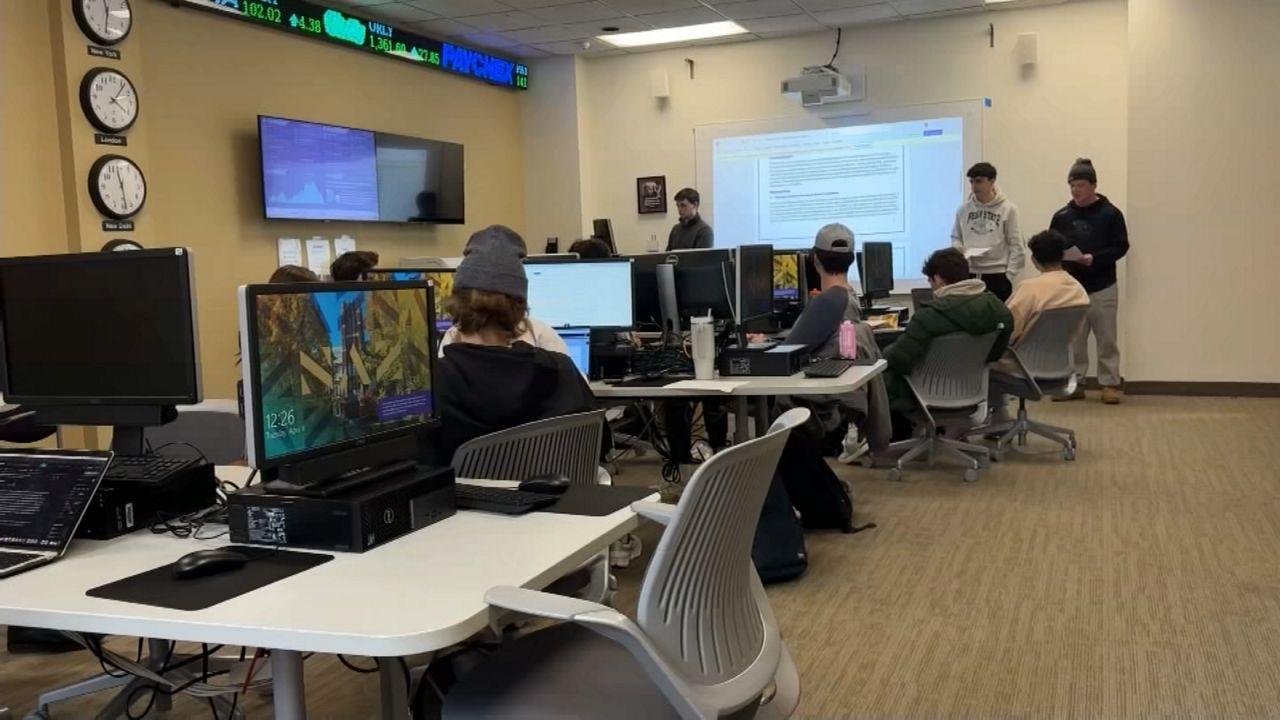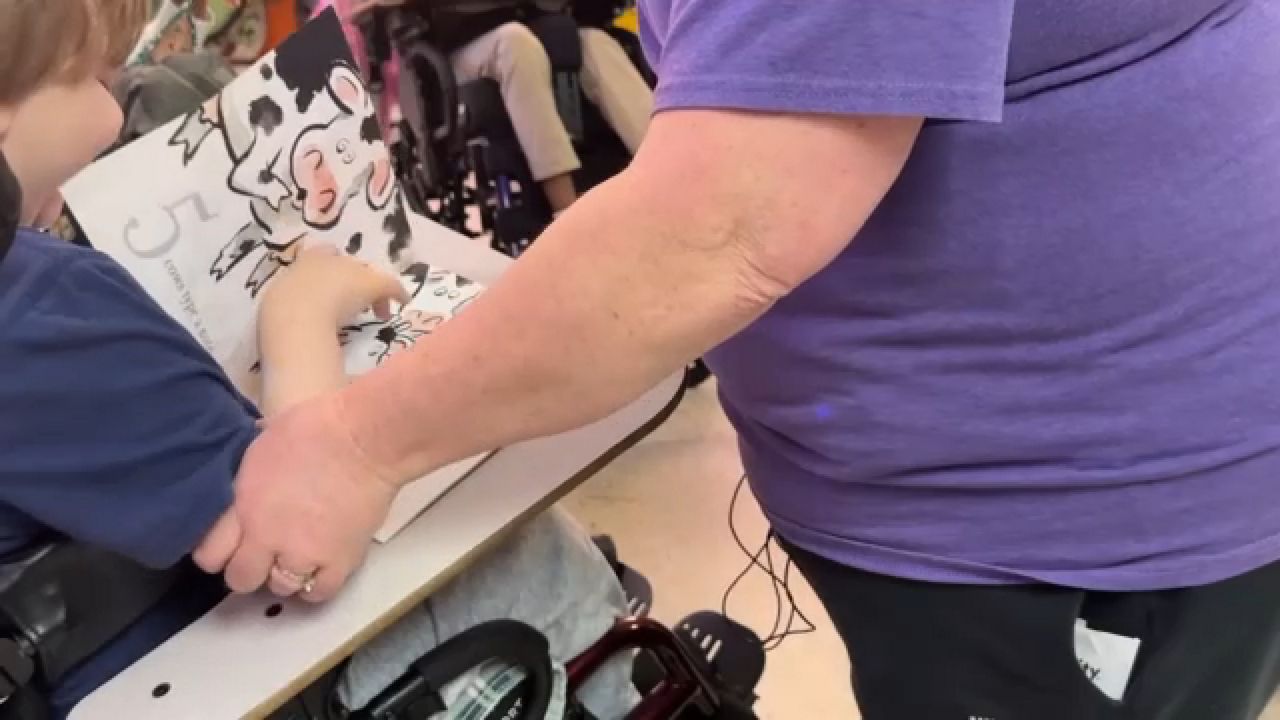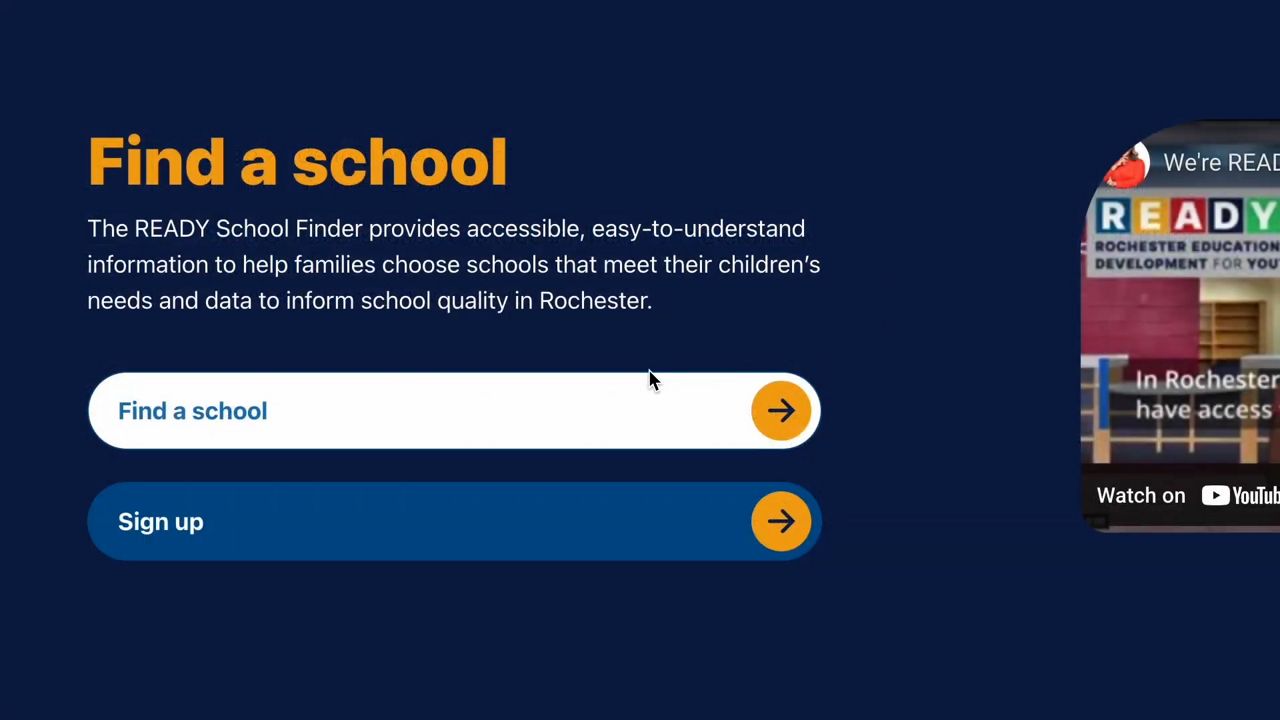ROCHESTER, N.Y. — Going to college can be a tough transition. And students with disabilities often face a number of competing obstacles and opportunities.
“Sometimes it's hard to hear what's going on and then in busy environments which noisy places are, it's with the vision,” disability leadership scholar Gavin Morrobel said. “Sometimes it's hard to get around and with backpacks on the floor and things I find. So it's just being careful, being cautious, taking my time [and] making sure I'm just being aware of all my surroundings.”
Gavin Morrobel was diagnosed with Usher syndrome type 1B at 5 years old. It’s a genetic condition involving partial or total hearing loss that can worsen over time.
“I am also completely deaf,” Morrobel said. “And then partially what comes with the deafness is my vestibular system is completely ruined. I have no fluids in my ear, so I have no balance. So all my balance that I acquired so I can walk. And everything has been through physical therapy and training my core and muscles so that I can walk. And so obtain normal activities.”
Morrobel relies on his implants to assist his hearing.
"So this is the cochlear implant,” Morrobel said. “There's a computer in here that transmits the sound into electrical impulses and brings it up the coil to where there's a magnet. And on my head there's a magnet that it sticks to. And these bumps on it transmit to a receiver in my head, which then brings electrical impulses, electrical impulses to the hearing nerve right next to my brain. Then my brain interprets the sounds.”
He was selected as the Rochester Institute of Technology’s first disability leadership scholars program. Morrobel now advocates and educates about disabilities.
“Can we build a program based on self-nomination student self-identification that says, ‘I'm interested in disability justice, I'm interested in disability advocacy, I'd like to be a leader in this work,’” the director of the Disability Services Office, Catherine Lewis, said. “I'd like to make a difference. And we invited students to apply.”
The director hopes the program will support and connect with other students with disabilities.
“We want to intentionally build up that community,” Lewis said. “We want to celebrate disabled scholars, disabled students, disabled leaders, and make sure that this group knows they're not alone.”
Scholars from the program receive financial support from its partnerships to help fund its scholarship.
“We know college is really expensive and employment outcomes for disabled folks are much lower than they should be,” Lewis said. “So that partnership with Microsoft not only gave us those financial tools and the partnership with NTID, not only gave us those financial support, but also the opportunity to spread the word more broadly.”
This allows students like Morrobel to receive the accommodations and resources needed to fulfill their college experience.
“I can select specific accommodations for each class so they can be different for each class, depending on my needs for each specific class, for example, I'll comment on accounting,” Morrobel said. “I want digital text, I want access to the projector materials, test accommodations.”
Morrobel hopes the new launch of this program will change the attitudes and thoughts surrounding the disability community.
“There's no limit to what we can do,” he said. “I've been told by doctors that I wouldn't be able to surf, I wouldn't be able to play sports, but I proved them wrong. I did all those things.”
And he strives to keep going.
“At the end of the day, it's just about saying that we are just people too and we are capable of whatever we want and the stars are in the limit for us too,” Morrobel said.
The director of disability services says applications are currently on hold until they find new funding for its scholarship program. As they wait on raising scholarship money they hope raising awareness is the first step in celebrating the disability culture at RIT.










